Publications
Articles, publications, books, tools and multimedia features from the U.S. Institute of Peace provide the latest news, analysis, research findings, practitioner guides and reports, all related to the conflict zones and issues that are at the center of the Institute’s work to prevent and reduce violent conflict.

Amid a Changing Global Order, NATO Looks East
As NATO celebrates its 75th anniversary this year, the Euro-Atlantic security alliance continues to deepen its engagement with Australia, Japan, South Korea and New Zealand, collectively known as the IP4. NATO has collaborated with these countries since the early 2000s, but Russia’s war against Ukraine, security challenges posed by China and renewed strategic competition have led to increased engagement. As the war in Ukraine grinds on and U.S.-China competition shows no sign of abating, the United States has much to gain from collaboration between its allies and partners in the Euro-Atlantic and Indo-Pacific.

Mirna Galic on NATO’s Long-standing Engagement in the Indo-Pacific
Contrary to China’s assertions, NATO has a long history of engagement with the Indo-Pacific. But the alliance’s deep partnerships in the region have taken on renewed importance in recent years amid Russia’s war on Ukraine and renewed strategic competition between the U.S. and China, says USIP’s Mirna Galic.

Whither NATO at 75?
NATO marked its 75th anniversary last week at a celebration in Brussels. While Russia’s invasion of Ukraine has injected the alliance with new life and resolve, the 32-member collective security pact is also wrestling with its future in a world of growing great power competition. In 2022, NATO formally identified for the first time China as a challenge to its interests and collective security. As NATO continues to support Ukraine and look to future global challenges, it also has internal issues to address, ranging from individual member defense spending to the problems posed by the need for collective decision-making among 32 members.
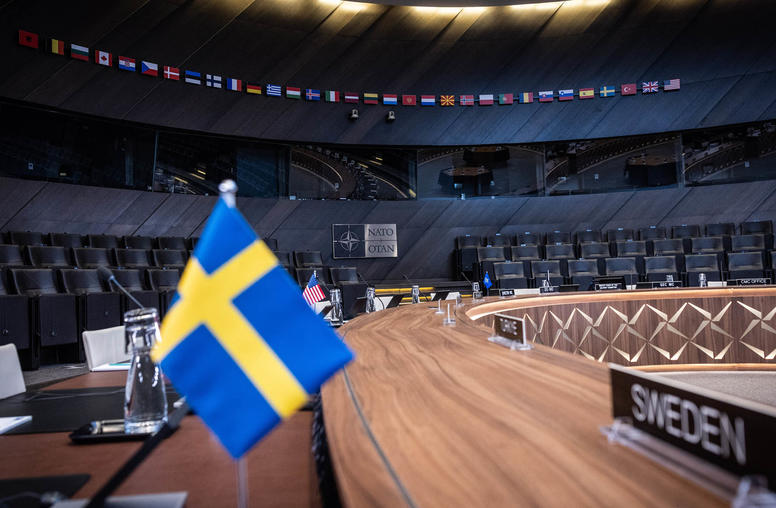
Will Sweden’s NATO Membership Deter Russian Aggression?
Sweden’s flag was hoisted at NATO’s headquarters in Brussels today as the Nordic country became the 32nd member of the transatlantic military alliance. Sweden’s membership, which follows that of neighboring Finland, is a consequence of Vladimir Putin’s invasion of Ukraine.
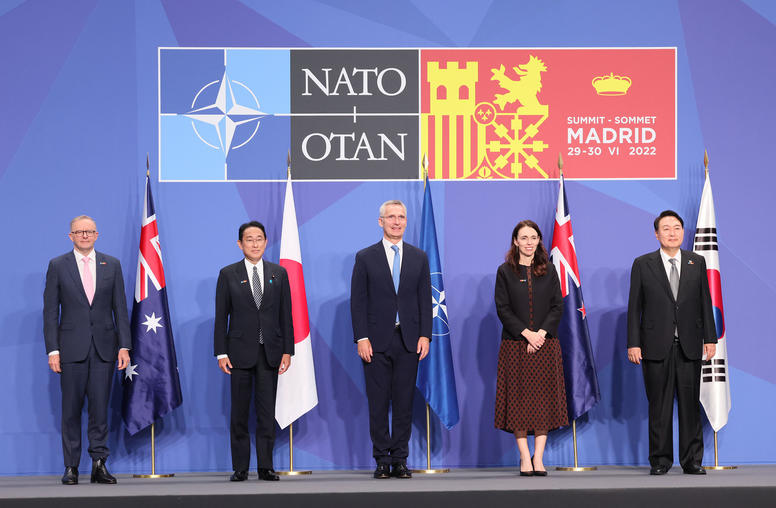
Report of the Expert Study Group on NATO and Indo-Pacific Partners
The North Atlantic Treaty Organization (NATO) and its four partner countries in the Indo-Pacific—Australia, Japan, the Republic of Korea (ROK), and New Zealand—have entered a period of increased engagement. This engagement is taking shape in the context of the war waged by the Russian Federation (Russia) against Ukraine, NATO’s growing awareness of the security challenges posed by the People’s Republic of China (China), and important structural changes in the international system, including the return of strategic competition between the United States and China and Russia. It is occurring not only in bilateral NATO-partner relations but also between NATO and these Indo-Pacific countries as a group.
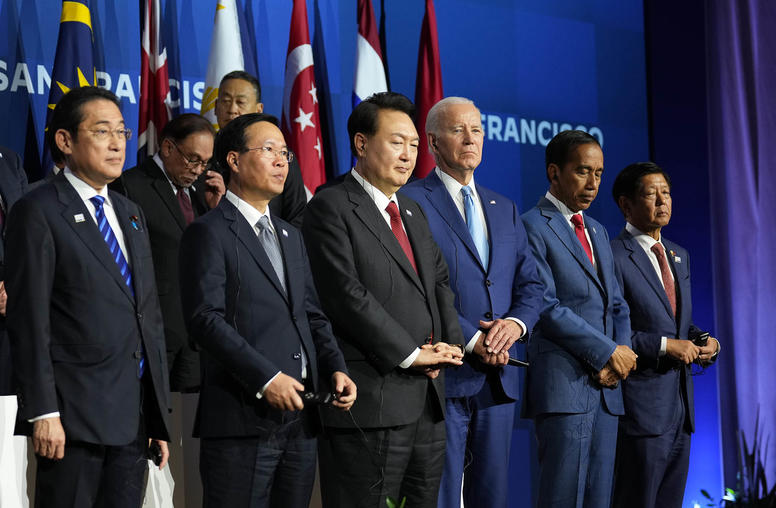
Two Years Later, What Has the Indo-Pacific Strategy Achieved?
This month marks the second anniversary of the Biden administration’s Indo-Pacific Strategy (IPS). USIP experts Carla Freeman, Mirna Galic, Daniel Markey, and Vikram Singh assess what the strategy has accomplished in the past two years, how it has navigated global shocks and its impact on partnerships in the region.

Mirna Galic on the U.S.-South Korea-Japan Summit
While last week’s summit of U.S., South Korean and Japanese leaders may have been historic, the three countries hope “to really institutionalize trilateral cooperation going forward” through joint diplomatic and security initiatives that present “a stronger, united front” in the Indo-Pacific, says USIP's Mirna Galic.
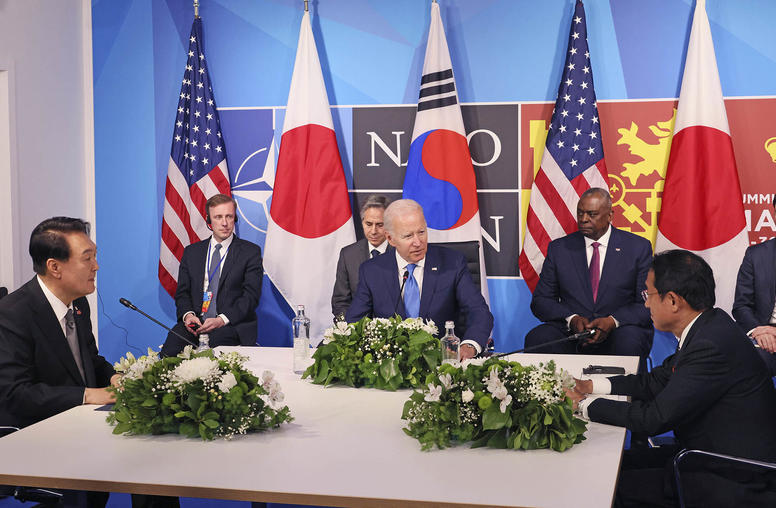
What to Expect from the Trilateral Summit with Japan and South Korea
After months of steadily increasing diplomatic exchanges — and a historic thaw in tensions between South Korea and Japan — President Joe Biden will host Japanese Prime Minister Fumio Kishida and South Korean President Yoon Suk Yeol at Camp David for a trilateral summit on August 18. The three leaders have previously met on the sidelines of larger multilateral forums, such as last year’s NATO summit, but the Camp David meeting marks the first standalone leader-level summit between the three countries.

Mirna Galic on the Role of Indo-Pacific Partners at the NATO Summit
While much of the conversation at this week’s NATO summit will be focused on Russia’s war in Ukraine, the presence of NATO partners Japan, South Korea, Australia and New Zealand “is a testament to … [NATO’s] interest in the Indo-Pacific and the focus on the challenges that China poses for the alliance,” says USIP’s Mirna Galic.
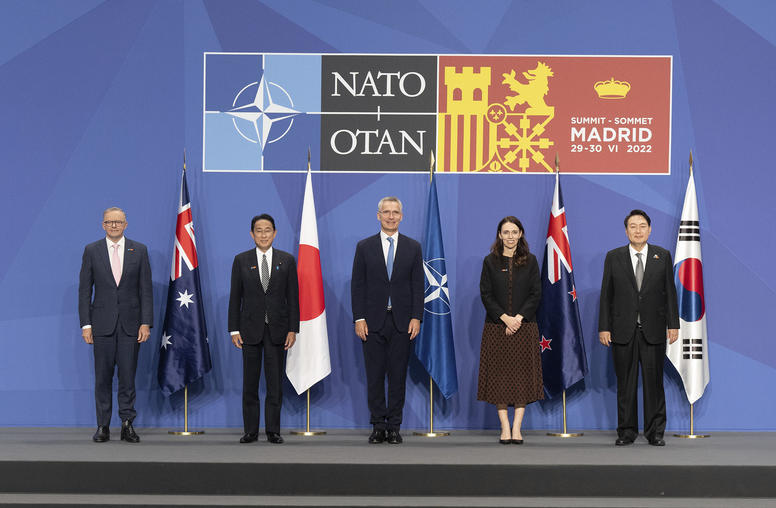
What’s Behind NATO’s Tightening Ties with its Indo-Pacific Partners?
NATO’s summit in Madrid, Spain, in June 2022 marked the first time the four leaders of NATO’s Indo-Pacific partner countries — Australia, Japan, New Zealand and the Republic of Korea (ROK) — joined NATO counterparts for a meeting at the heads of state and government level. July 2023, at the NATO summit in Vilnius, Lithuania, will mark the second. The high level of media attention paid to the attendance in Madrid of the Indo-Pacific partners, known informally as the Indo-Pacific Four or IP4, is likely to be repeated in Vilnius. Beyond this, what should Indo-Pacific watchers expect from the Vilnius Summit in terms of NATO-IP4 developments?